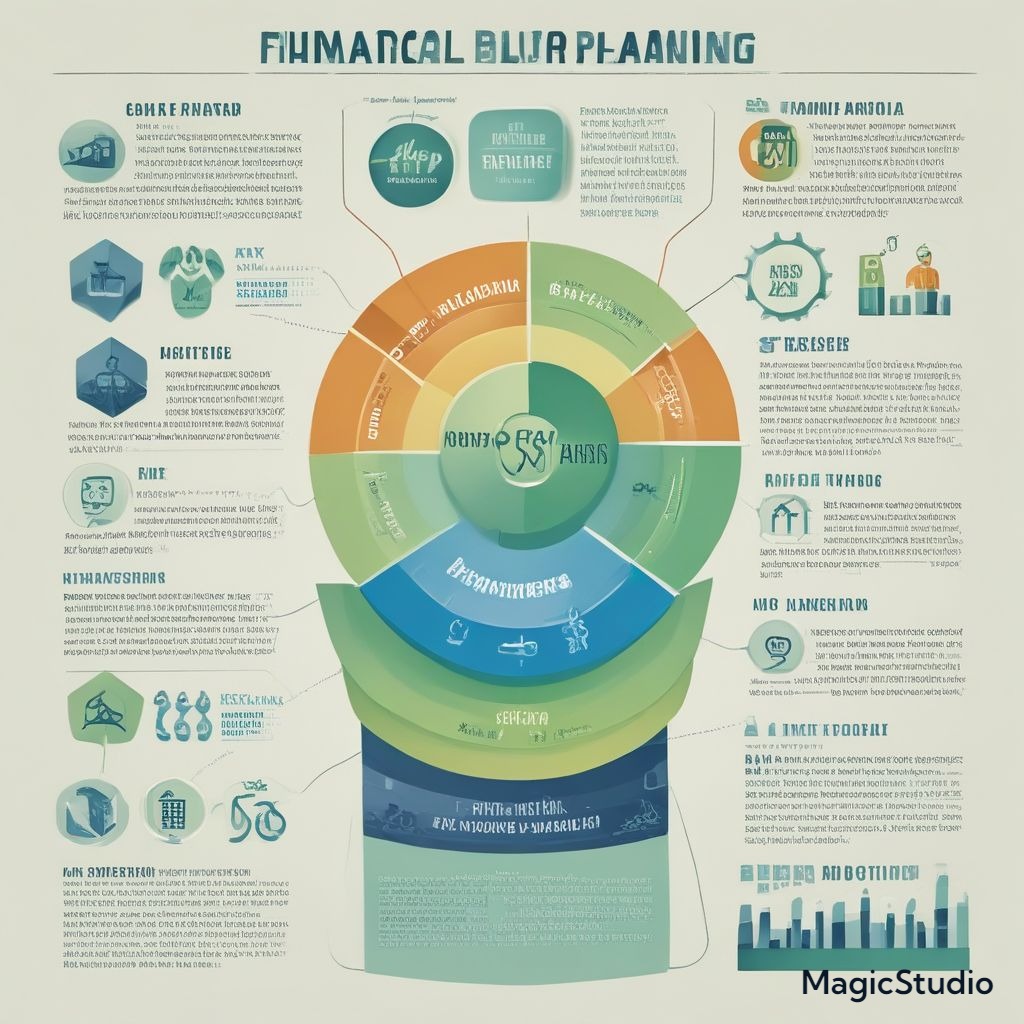Economic crises can be daunting, impacting job security, investment values, and overall financial health. Whether it’s a recession, inflation surge, or unexpected market downturn, having a solid financial plan is crucial to weathering these storms. In this guide, we’ll explore essential tips for financial planning during an economic crisis to help you safeguard your finances and position yourself for future growth.
Understanding the Importance of Financial Planning
Financial planning is the process of managing your finances to meet your life goals. During an economic crisis, effective financial planning becomes even more vital. It helps you:
- Mitigate Risks: Identify and manage potential financial threats.
- Maintain Liquidity: Ensure you have enough cash flow to cover essential expenses.
- Seize Opportunities: Position yourself to take advantage of potential market rebounds.
Top Tips for Financial Planning During an Economic Crisis
1. Create an Emergency Fund
An emergency fund acts as your financial safety net. Aim to save three to six months’ worth of living expenses in a high-yield savings account. This fund can cover essential costs during job loss or unexpected expenses, providing peace of mind during uncertain times.
2. Reassess Your Budget
During an economic crisis, it’s crucial to reevaluate your budget. Consider the following steps:
- Cut Non-Essential Expenses: Identify discretionary spending that can be reduced or eliminated.
- Prioritize Essential Needs: Focus on necessities such as housing, food, healthcare, and utilities.
- Track Your Spending: Use budgeting apps or tools to monitor your expenses closely.
3. Diversify Your Investments
Economic crises can lead to market volatility. Diversifying your investments helps spread risk and protect your portfolio. Consider:
- Asset Allocation: Invest in a mix of stocks, bonds, and other assets to balance potential risks and returns.
- Global Diversification: Explore international investments to reduce dependence on any single economy.
4. Stay Informed and Adaptable
Stay updated on economic news and trends that could impact your financial situation. Consider subscribing to reputable financial news outlets, following market analysts, and attending webinars. Being informed allows you to adapt your financial strategy as needed.
5. Focus on Debt Management
Managing debt is crucial during an economic crisis. Here are some tips:
- Prioritize High-Interest Debt: Focus on paying down high-interest credit card debt first to reduce financial strain.
- Consider Consolidation Options: If you’re overwhelmed by multiple debts, explore consolidation loans to simplify payments and possibly lower interest rates.
- Negotiate with Creditors: If you’re struggling to make payments, don’t hesitate to reach out to creditors to discuss potential adjustments or payment plans.
6. Seek Professional Financial Advice
Consulting with a financial advisor can provide personalized guidance tailored to your situation. A professional can help you navigate complex financial decisions, create a comprehensive financial plan, and identify opportunities during an economic downturn.
7. Invest in Yourself
During economic uncertainty, investing in your skills and education can pay off significantly. Consider:
- Online Courses: Enhance your skills or learn new ones that are in demand in your industry.
- Networking: Attend virtual networking events or industry conferences to connect with potential employers or clients.
- Certifications: Pursue relevant certifications that can boost your career prospects and income potential.
8. Maintain a Long-Term Perspective
While it’s easy to feel anxious during an economic crisis, maintaining a long-term perspective is crucial. Remember:
- Markets Recover: Historically, markets have rebounded after downturns, and staying invested can lead to long-term growth.
- Stick to Your Plan: Avoid making impulsive financial decisions based on short-term market fluctuations.
